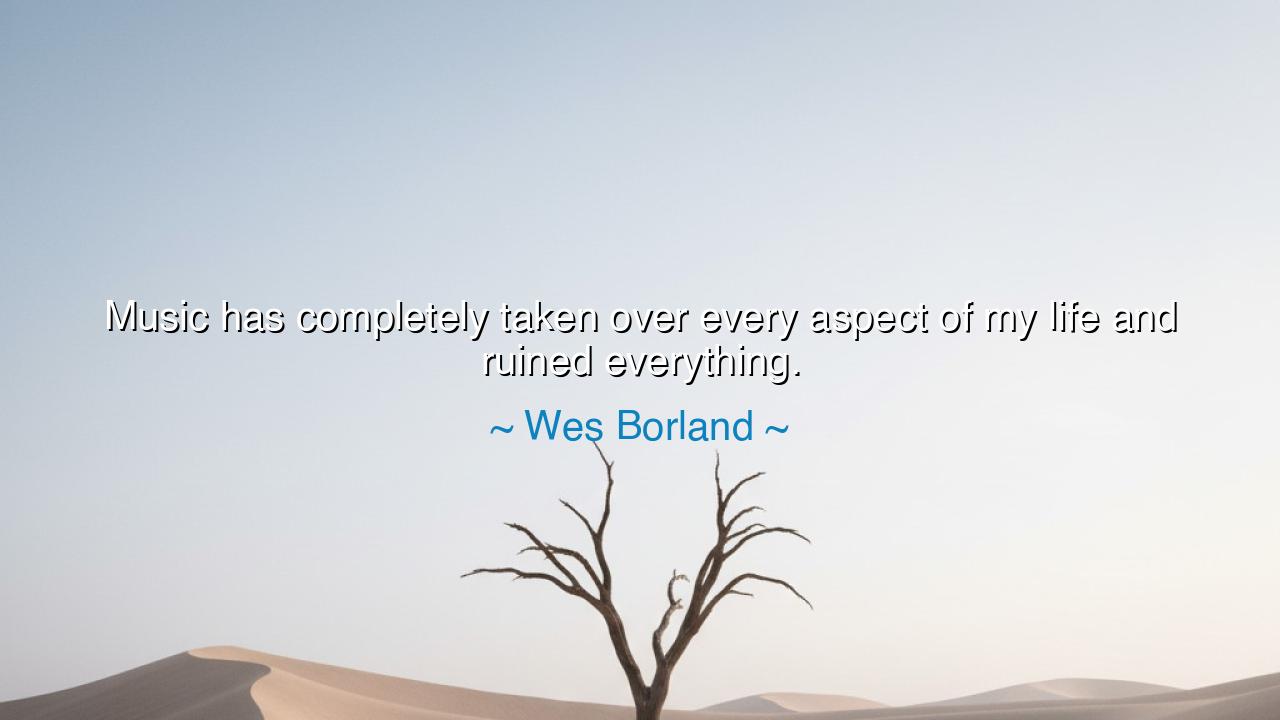
Music has completely taken over every aspect of my life and






Hear, O seekers of wisdom, the bitter yet truthful cry of Wes Borland, who confessed: “Music has completely taken over every aspect of my life and ruined everything.” These words, though heavy with sorrow, are not a rejection of art itself, but a warning of what happens when passion, unchecked, devours the soul. For all great gifts hold both light and shadow, and even the most divine of arts may enslave the one who serves it too fiercely.
The ancients knew this peril well. They revered the Muses, goddesses of music and song, but they also feared them. For those who gave themselves wholly without balance could be driven to madness. Think of Orpheus, whose lyre charmed beasts and stones, and yet whose obsession with song and lost love led him to ruin in the dark halls of Hades. Like Orpheus, Borland’s lament tells us that when art ceases to be a blessing and becomes a tyrant, it may unravel all other bonds—family, peace, and joy.
And yet, we must not despise music, for it is holy. The problem is not the gift itself, but when man becomes consumed by it, forgetting all else. History tells us of Vincent van Gogh, whose art possessed him so utterly that it broke his body and mind. His paintings were filled with fire, but he himself was left to wrestle with torment. Likewise, Borland reveals that when the flame of creativity is left unchecked, it may burn not only brightly, but destructively, consuming the one who holds it.
The words of Borland are a cry for balance. They remind us that every passion, however noble, must be placed in harmony with the rest of life. A warrior who lives only for battle will perish empty; a scholar who lives only for books may forget the warmth of human touch; an artist who breathes only music may find silence unbearable, and in that endless noise, lose himself. Thus the wisdom here is not to forsake art, but to master it—lest it master you.
Let us reflect upon the tale of Marcus Aurelius, emperor and Stoic philosopher. Though burdened with empire, he warned himself daily not to be consumed by power or duty. He wrote, “Everything in excess is against nature.” If even the crown of Rome must be held lightly, how much more should the strings of a guitar, the notes of a song, be carried with care? Borland’s sorrowful truth reminds us that passion without restraint can turn gift into curse.
The lesson is plain: honor your passion, but guard your soul. Do not let music, or any pursuit, rob you of love, friendship, or peace. If you are an artist, let your work flow from life, not in place of it. Rest when you must, seek joy in other things, and remember that your art is but one part of your being. For the greatest songs are born not of obsession alone, but of a heart balanced between labor and love, discipline and delight.
Practical wisdom follows: create boundaries for your craft. Dedicate time for your art, but also time for silence, for family, for the simple joys of life. Step back from your work to see it clearly, lest it consume you. And when you feel enslaved by your passion, pause and remind yourself why you began—to express truth, to share beauty, not to lose yourself.
So let it be remembered: Wes Borland’s lament is not the curse of music, but of imbalance. His words are a torch warning those who walk the path of passion. Let them remind you that the flame of art must warm, not consume. To live fully is greater than to create endlessly. For the artist who preserves his soul alongside his art shall leave behind not ruin, but a legacy that endures in harmony with life itself.






AAdministratorAdministrator
Welcome, honored guests. Please leave a comment, we will respond soon